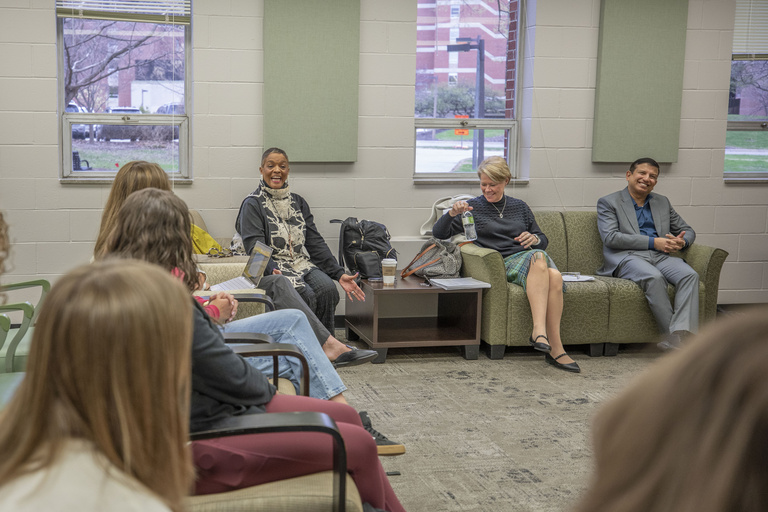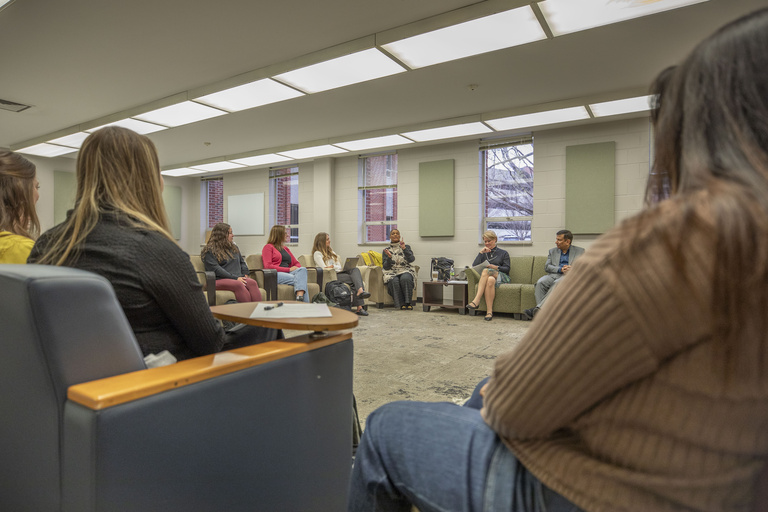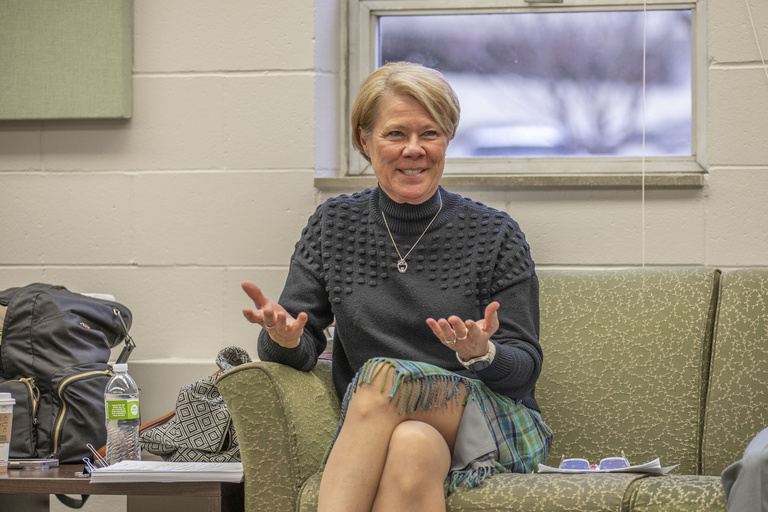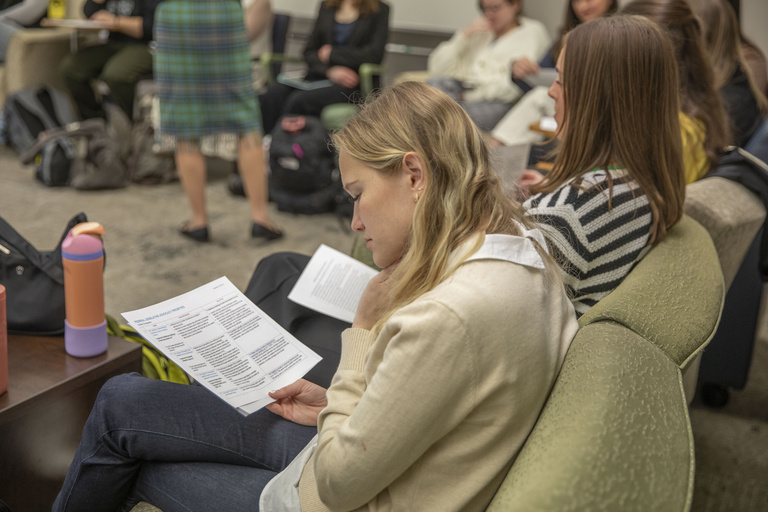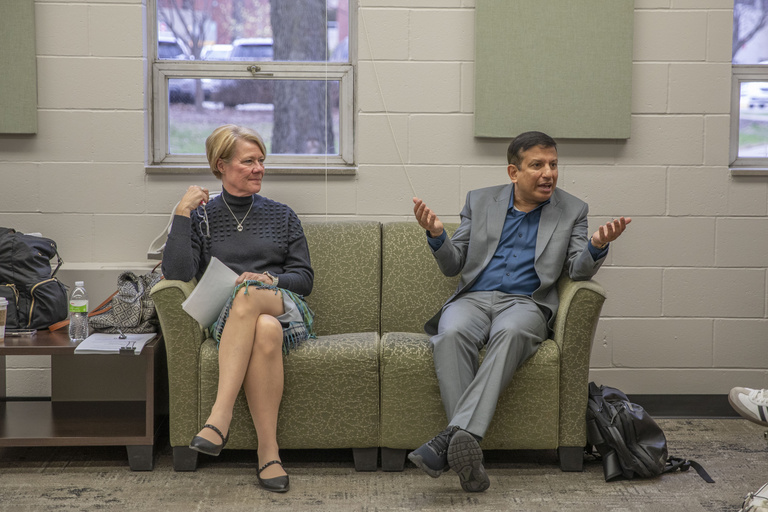By Will Bower
The University of Iowa Department of Communication Sciences and Disorders (CSD) hosted a panel of current and former members of the American Speech-Language-Hearing Association (ASHA) board of directors as part of a two-day visit in April. Panelists included current president Bernadette Mayfield-Clarke, past vice president for science and research Sumit Dhar, and past president Tena McNamara.
ASHA was founded in the spring of 1925 at the Iowa City home of Lee E. Travis, a former University of Iowa professor who is considered one of the founding fathers of American speech-language pathology. The panel was brought together in honor of the association’s 100th anniversary.

The day began with a roundtable discussion attended by students in leadership positions, followed by an open professional development seminar, a visit to the new Health Services Academic Building -- currently under construction -- and finally a visit to the Travis home.
Former ASHA president Tena McNamara said the caliber of the students and faculty stuck out to her during the visit.
“The students' enthusiasm was not only infectious but also a testament to the high standards set by the department,” McNamara said. “Equally impressive was the faculty's commitment to collaboration and mentorship.”
Malina Paley, a fourth-year undergraduate and research assistant in the Stuttering Lab, said she attended the discussions and reflected on questions about the future of the field.
“We are now at an interesting point in the world for healthcare providers that strive towards culturally responsive practice,” Paley said. “I think we all wanted to hear that no matter what is happening in the world, it will remain our priority to serve clients following what best practice is for each individual.”
Paley also noted that the panelists were kind and personable.
“It felt very natural to have a conversation with them about their experiences in the field,” Paley said. “You could feel the camaraderie amongst them which was especially nice in these uncertain times.”
Karsyn Rush, a second-year Au.D student and graduate research assistant in the Human Auditory and Neuroscience Group (HANG), said the panel was informative.
“I gained valuable insights from the panelists, particularly regarding national-level professional involvement,” Rush said. “It was also exciting to come together and showcase our undergraduate and graduate research projects.”
Maddie Sniadecki, a fourth-year undergraduate and research assistant in the Clinical Linguistics and Disparities Lab, said meeting with the panelists was like an “academic super bowl.”
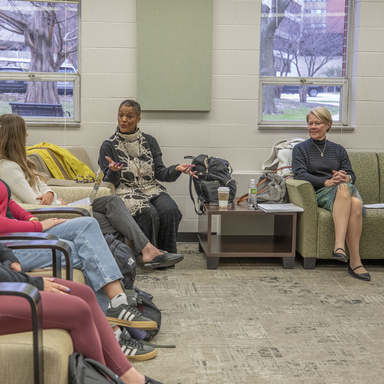
“The panelists' genuine interest and support for the upcoming generation of SLPs and Au.Ds were incredibly motivating,” Sniadecki said. “They stressed that we are catalysts for change in the field, along with ASHA by our side.”
Sniadecki said she had the opportunity to ask the panelists how students can get involved with advocacy on large and small scales.
“A major takeaway was how SLPs and Au.Ds have the responsibility to advocate for the profession and the people they serve,” Sniadecki said. “It does not come down to politics, it comes down to people.”
McNamara said the ASHA visit was a powerful reflection on the past and future of the field of communication sciences and disorders.
“The University of Iowa's program stands as a beacon of excellence,” McNamara said. “This event served as a reminder of the legacy that inspires progress and the profound possibilities that lie ahead.”



